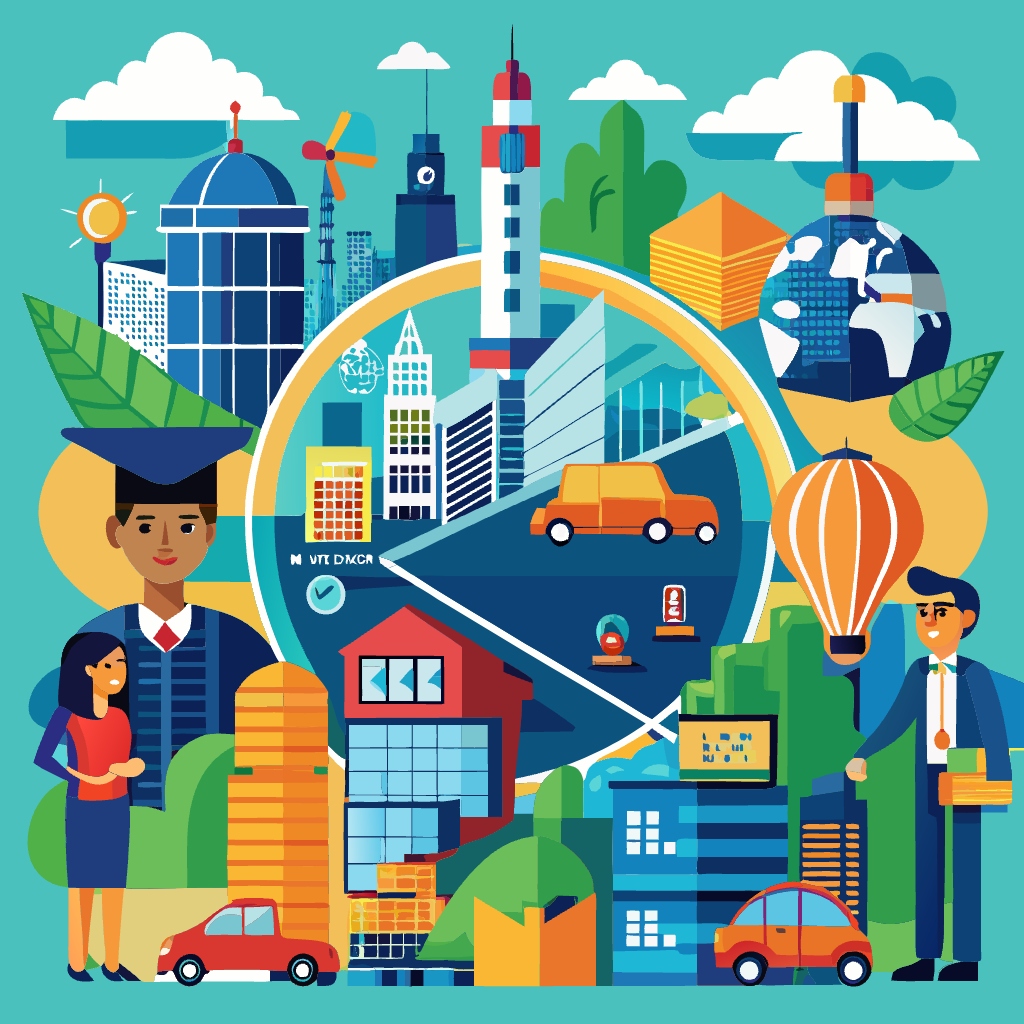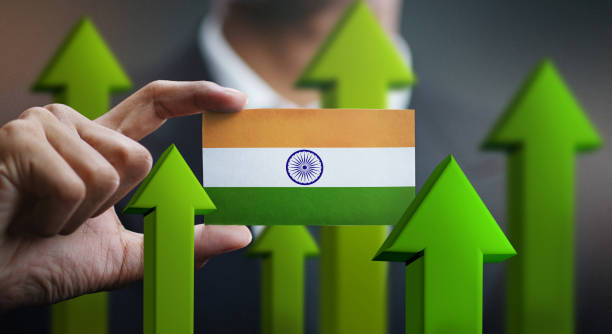The transition of India from a developing to a developed country is a complex process that depends on multiple factors, including economic growth, social development, infrastructure, governance, and global recognition. There isn’t a specific date or timeframe universally agreed upon for when India will be recognized as a developed country, but several aspects play a crucial role in this transition:
Economic Growth:
- India needs sustained high GDP growth rates.
- Per capita income must reach levels comparable to developed nations.
- Reducing economic inequality and ensuring widespread prosperity.
Social Development:
- Improvement in education and literacy rates.
- Access to quality healthcare for all citizens.
- Reduction in poverty and unemployment rates.
- Gender equality and social inclusion.

Infrastructure:
- Development of world-class infrastructure, including transportation, energy, and digital networks.
- Urbanization with smart cities and sustainable development practices.
Governance and Political Stability:
- Strong institutions, effective governance, and transparency.
- Robust legal frameworks and adherence to the rule of law.
- Political stability and effective management of resources.
Innovation and Technology:
- Leading in technological advancements and innovation.
- Investment in research and development.
- Adoption of cutting-edge technologies in various sectors.
Global Recognition and Standards:
- Meeting international standards in human development indices.
- Playing a significant role in global affairs.
- Recognition by international bodies like the United Nations, World Bank, and others.
Current Status and Predictions:
While India has made significant progress in various areas, the timeline for becoming a developed country is not fixed. Various reports and experts suggest that if India maintains its growth trajectory and addresses challenges effectively, it could be recognized as a developed country in the next few decades, possibly around 2040-2050. However, this is speculative and depends on many internal and external factors.
Government Initiatives:
The Indian government has launched several initiatives like “Make in India,” “Digital India,” and “Skill India” aimed at accelerating economic growth and development. These initiatives, along with efforts to improve infrastructure, education, and healthcare, are crucial steps toward achieving developed status.
India’s journey from a developing to a developed country is ongoing, and while there’s no fixed timeline, continuous progress in these areas will bring the country closer to that goal.
FAQ related to DEVELOPING INDIA
How is India currently classified in terms of development?
India is currently classified as a developing country. While it has made significant progress in various areas, including technology, education, and infrastructure, it still faces challenges such as poverty, inequality, and limited access to healthcare and education in some regions.
What are the major factors preventing India from being recognized as a developed country?
Major challenges include poverty, inequality, inadequate healthcare and education systems, infrastructure deficits, political and bureaucratic inefficiencies, environmental issues, and social challenges such as caste and gender inequality.
What steps is India taking to become a developed country?
India is focusing on economic reforms, infrastructure development, digitalization, improving education and healthcare, reducing poverty, and promoting sustainability. Initiatives like “Make in India,” “Digital India,” “Skill India,” and various social welfare programs are part of the strategy to accelerate development.
By when is India expected to become a developed country?
There is no definitive timeline, as it depends on various factors such as economic growth, policy effectiveness, global conditions, and internal challenges. Some experts predict that India could achieve developed status by 2040-2050 if it continues on its current growth trajectory and addresses its key challenges.
What role does technology play in India’s development?
Technology plays a crucial role in India’s development. The IT and digital sectors are among the fastest-growing areas of the economy, contributing significantly to GDP, employment, and innovation. India is also focusing on becoming a global leader in digital services, AI, and technology-driven industries.
What role does international recognition play in India’s development status?
International recognition involves meeting global benchmarks in economic performance, social indicators, and governance. Being acknowledged as a developed country by international organizations like the United Nations, World Bank, and IMF depends on India achieving these benchmarks.
How can individuals contribute to India’s development?
Individuals can contribute by participating in the economy, staying informed, voting responsibly, supporting local businesses, promoting education, and engaging in community service. Personal responsibility in areas like environmental conservation and social inclusion also plays a crucial role.
